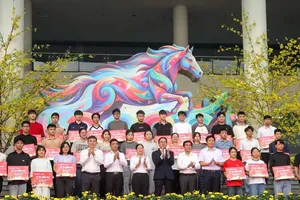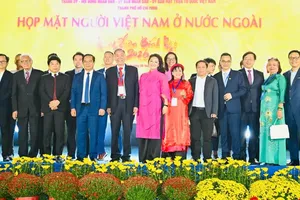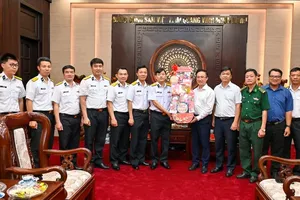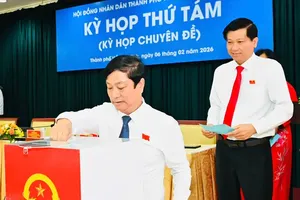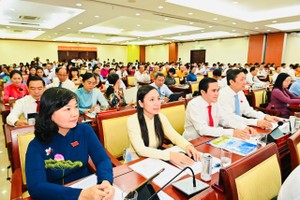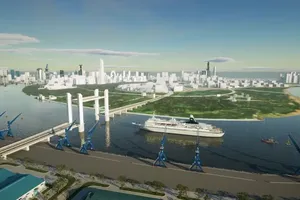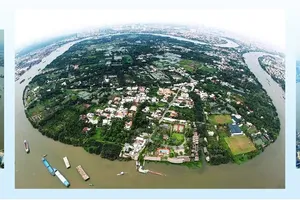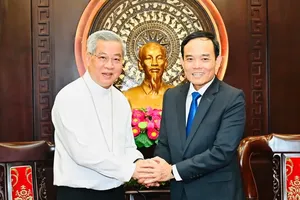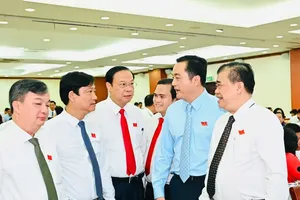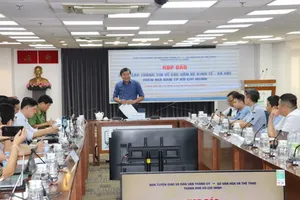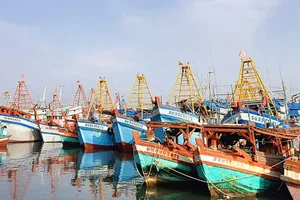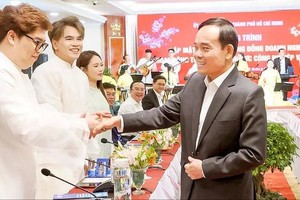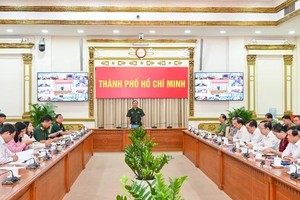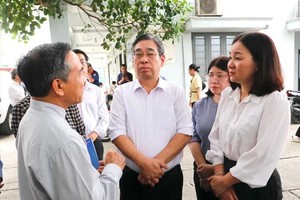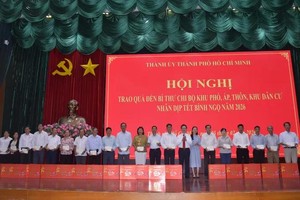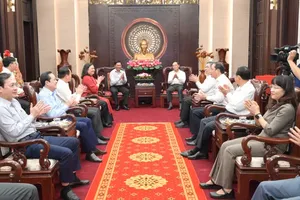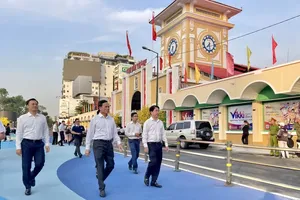The Green Transition Forum and Recycling Festival 2025 were opened on the morning of July 31. The High Quality Vietnamese Products Business Association in collaboration with several organizations, hosted this event.
Among attendees were Deputy Head of the Central Propaganda and Mass Mobilization Commission Huynh Thanh Dat, Chairman of the Ho Chi Minh City People’s Committee and Deputy Secretary of the Ho Chi Minh City Party Committee Nguyen Van Duoc.
The one-day event features various awareness and networking activities, as following as the announcement and awarding of a green sponsorship package worth over VND1 billion (US$38,121) to nine small businesses and startups; the introduction of new initiatives promoting green transition and green consumption; a signing ceremony for cooperation between the High Quality Vietnamese Products Business Association, the Vietnam Packaging Recycling Alliance (PRO Vietnam) and Vietnam National University–Ho Chi Minh City; a “Five Minutes to Live Green” interactive session; a talk show titled “When life gives you a pineapple”; and the final round of the “Student Green Innovation” competition.
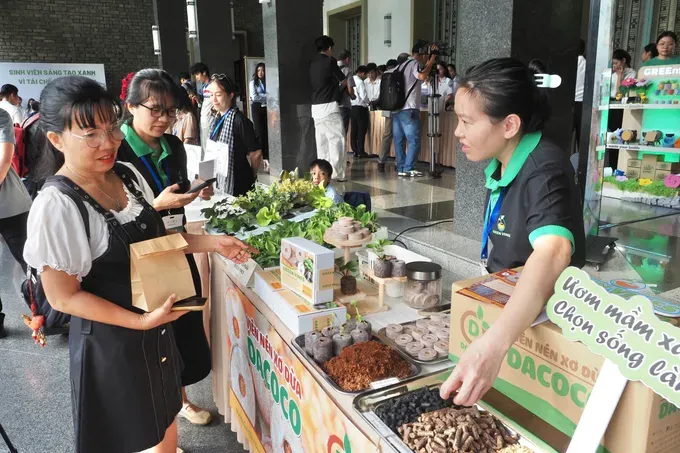
Delivering his speech at the event, Chairman of the Ho Chi Minh City People’s Committee Nguyen Van Duoc indicated that Ho Chi Minh City has just been ranked among the top two cities in the world for resident retention, based on a survey by the Gensler Research Institute.
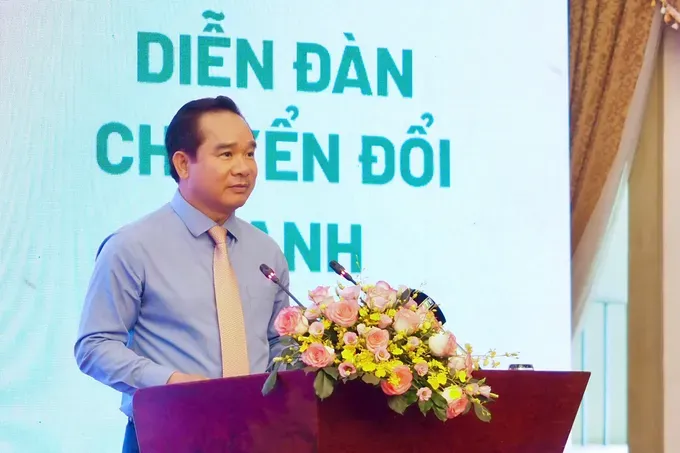
He also emphasized that the Ho Chi Minh City Green Transition Forum and the 2025 Recycling Festival are meaningful activities contributing to the city's goal of becoming one of the world’s top 100 most livable cities.
However, Ho Chi Minh City is currently facing increasingly severe impacts of climate change, the reshaping of global supply chains and intense economic competition.
The development of Ho Chi Minh City is assessed not just through its GRDP, but through indicators of resilience and innovation potential. The city is expanding regionally, with industrial activities concentrated in Binh Duong and energy generation centered in Ba Ria – Vung Tau. Both of which urgently need to accelerate green transition efforts to enhance competitiveness.
In terms of infrastructure, Ho Chi Minh City must create a smart and sustainable ecosystem. Metro Line No. 1 (Ben Thanh- Suoi Tien) is not only a transportation project but also serves as the core of a dynamic, multimodal public transport ecosystem, connecting electric buses, waterway transit and future green mobility initiatives.
Meanwhile, resource strategies must move from treatment to value regeneration. Waste is now seen as a resource, making reduction, reuse, and sorting at the source critical. Therefore, waste-to-energy plants are not just for treatment but are key to energy production and a modern recycling sector.
In the industrial sector, the focus must shift from general investment attraction to targeting high-quality capital and core technologies. The strategic development and transformation of export processing zones and industrial parks should prioritize depth and innovation, emphasizing high-tech industries, the digital economy and the green economy.
To realize this vision, Ho Chi Minh City has outlined several specific directions. In particular, the departments and agencies need to proactively innovate their approaches, leverage technology and accelerate digital transformation. Science and technology must serve as the driving force.
Under the key legal framework of Resolution 57-NQ/TW, the city will prioritize allocating resources to internationally accredited research centers (Centers of Excellence – CoEs) and startups focused on developing technological solutions in environmental protection, energy and advanced materials.
Enterprises must take the lead and view compliance with environmental regulations and green standards not as barriers, but as opportunities to drive product innovation, expand into new markets, and enhance their brand values.
Deputy Head of the Central Propaganda and Mass Mobilization Commission Huynh Thanh Dat affirmed that green transition is not only a global trend but also a vital necessity for enhancing national competitiveness and meeting international standards.
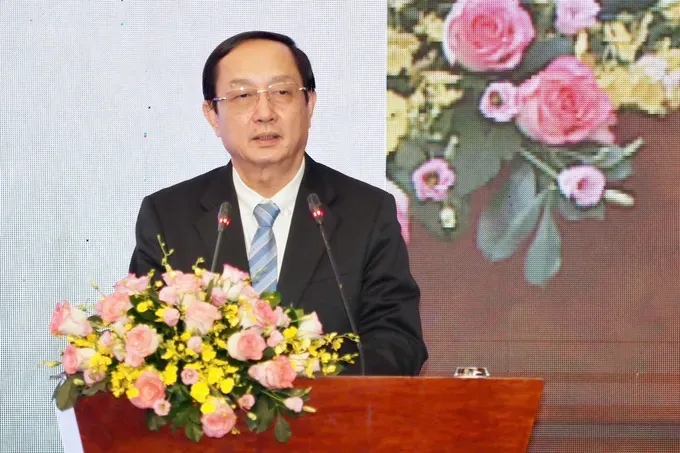
Acknowledging the pivotal role of science and technology in driving the green transition, the Government is allocating priority resources to develop digital infrastructure, a national data framework, industry-specific databases and open data systems to enable businesses to analyze, forecast and make environmentally responsible decisions.
Additionally, the Government is also promoting the development of digital platforms for energy management, carbon emission tracking, green logistics, smart agriculture and the circular economy.
